
Brian LeStourgeon
Brian serves as the pastor of a small church in the middle of Arizona. He attended The Southern Baptist Theological Seminary.
Libraries
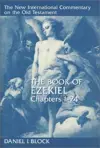


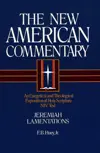

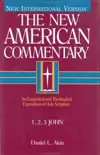

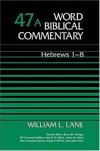


![The Letter to the Ephesians [Withdrawn]](https://bestcommentaries.com/images/bookthumbs/4-thumb.webp)
![The Letter to the Ephesians [Withdrawn]](https://bestcommentaries.com/images/bookthumbs/4-thumb.webp)



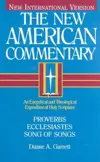

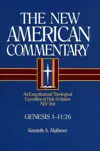




Reviews
The Book of Revelation (Rev. ed.). NICNT. Eerdmans, 1997.
Obviously, your preference for a Revelations commentary will depend on your theology. Mounce is very clear with a good understanding of apocalyptic genre and a cautious premillennial hermeneutic. Osbourne (BECNT, 2002) is also good for survey of views. Beale (NIGTC, 1999) is solid, technical, amillennial. Start with Mounce and then add others as you figure out what you are doing.
1,2, 3 John. NAC. Broadman & Holman, 2001.
Akin is a good semi-technical commentary with a real commitment to exposition. Colin Kruse (PNTC, 2000) is another choice.
1, 2 Peter, Jude. NAC. Broadman & Holman, 2003.
Another fine example of what the NAC should be. Good semi-technical, good expositional uses. Other promising commentaries are hitting the shelves, but get Schreiner first and add others as you need them later.
The Letter of James. PNTC. Eerdmans, 2000.
This is a good entry in the Pillar series. Moo is level headed and seeks the wisdom James offers. Plus, it is from the guy who wrote the Romans commentary, so no “conflict.”
When I preached through this book, I also found Motyer (BST) and Johnson (AB) extremely helpful.
Hebrews. 2 Vols. WBC. Thomas Nelson, 1991.
Lane's two volumes are committed to addressing the various facets of Hebrews, but in places all the information keeps one from seeing the forest for the trees. I look forward to the other promising Hebrews commentaries on the way.
Pastoral Epistles. WBC. Thomas Nelson, 2000.
An excellent conservative exposition. Pauline authorship, complementarian. Clear, cogent, constructive.
The Letters to the Thessalonians. PNTC. Eerdmans, 2002.
This is a compact, learned, and useful treatment of the two letters. Wanamaker (NIGTC, 1990) is good, but more technical and older.
Colossians, Philemon [Withdrawn]. WBC. Thomas Nelson, 1982.
A tad old, but O’Brien is very good and is concerned with contextual meaning. You should enjoy this useful volume.
Philippians (2nd ed.). BECNT. Baker Academic, 2005.
Silva is sharp and insightful. However, O’Brien (NIGTC, 1991) is also very good. If you like the technical (and do not mind reading NIGTC), get O’Brien; but everyone would benefit from Silva, so he makes my list.
The Letter to the Ephesians [Withdrawn]. PNTC. Eerdmans, 1999.
Interesting, engaging, erudite, cogent. Concerned with textual meaning and useful expositionally. This is the best commentary on Ephesians.
Galatians. WBC. Thomas Nelson, 1990.
A bit more technical and academic than I like. Nevertheless, Longenecker is the best fit for my other "first commentary" criteria. Within the format, he does an admirable job of getting to meaning and his introduction is very good.
Timothy George (NAC, 1994) has a powerful presentation, but gets so wrapped up in systematic theology that you sometimes forget you are reading a commentary on Galatians. It would be a worthwhile 2nd addition.
2 Corinthians. NAC. Broadman & Holman, 1999.
An excellent commentary in the top ranks of the NAC. Insightful and engaging with good ties to biblical theology.
1 Corinthians. BECNT. Baker Academic, 2003.
Garland’s is a strong work and the best fit for my "firsts" list. Thiselton (NIGTC, 2000) and maybe Fee (NICNT, 1987) would be helpful later.
The Epistle to the Romans. NICNT. Eerdmans, 1996.
Moo and Schreiner (BECNT, 1998) are both "5s" as far as I can tell. Schreiner is more engaging, but Moo is a tad more complete overall. Get them both when you can.
Acts. BECNT. Baker Academic, 2007.
Bock has produced a very helpful commentary on Acts - dealing with history and theology while accepting the general trustworthiness of Luke. This is the first one I grab.
Polhill (NAC, 1992) is a good second with insightful details not found in other works. Witherington's volume (Eerdmans, 1997) gives us Witherington at his best.
The Gospel according to John. PNTC. Eerdmans, 1990.
Despite recent competition, I still think Carson is the best “I’ve only got one” book for John. Clear with characteristic Carson meticulousness. Kostenberger (BECNT, 2005) is good on survey, but not as engaging. Blomberg (IVP, 2002) is worth a look.
Luke. NAC. Broadman & Holman, 1993.
Stein is an expert on Luke and goes beyond the NAC expectations with his disciplined 3-part analysis of each passage. Bock (BECNT, 1994, 1996) is great, but expensive (2 vols.) and much more than you need until you decide to preach through.
The Gospel according to Mark. PNTC. Eerdmans, 2001.
Edwards approaches Mark as Mark and does not get bogged down in synoptic arguments. He pays particular attention to contextual meaning via “sandwiches” as literary conventions with theological purposes.
“Matthew” in Matthew, Mark, Luke. EBC. Zondervan, 1984.
Carson is dynamic and fantastic, complete and comprehensive in these volumes on Matthew. The work is a touch heavy on academic detail, but with Carson, this does not impede the general accessibility. A commentary must-have.
The Message of Zechariah. BST. InterVarsity Press, 2003.
Webb provides a conversational treatment of the book focused on evangelical theology. Useful until there are more current, conservative, book-length treatments of Zechariah.
Haggai and Malachi. NAC. Broadman & Holman, 2004.
Evangelical, useful expositions. Verhoef (NICOT, 1987) is also good (especially on Haggai), but more academic.
Micah, Nahum, Habakkuk, Zephaniah. NAC. Broadman & Holman, 1998.
Bailey is very good on Nahum, Habakkuk, and Zephaniah. Barker’s Micah is a bonus. Robertson (NICOT, 1990) is rhetorically useful (a good second choice).
Hosea–Jonah. WBC. Thomas Nelson, 1987.
Conservative scholarship with useful insights. Emphasis on the covenant. I think Garrett (NAC, 1997) is better on Hosea and Joel and is worth purchasing.
Daniel. TOTC. InterVarsity Press, 1981.
Conservative scholarship, amillennial. Insightful and erudite, if dated. Miller (NAC, 1994) is a dispensational choice, but Baldwin is stronger in most areas. Goldingay (WBC, 1989) is more critical.
The Book of Ezekiel. 2 Vols. NICOT. Eerdmans, 1998.
This is one of the best modern commentaries on any biblical book. It is engaging, insightful, scholarly, complete, and useful. Pricey, yes, but worth it. You may never need another commentary on Ezekiel.
Jeremiah, Lamentations. NAC. Broadman & Holman, 1993.
Huey is a good reference volume with an eye toward exposition of individual passages. Scalise may produce a replacement volume for NICOT. Get Huey until Scalise appears.
The Book of Isaiah. 2 Vols. NICOT. Eerdmans, 1998.
Oswalt is the recognized evangelical work of choice. I also highly recommend Motyer’s The Prophecy of Isaiah (IVP, 1993 – not the abridged 1999 version) for its literary insights.
Song of Songs, Lamentations. WBC. Thomas Nelson, 2004.
Garrett's contribution is outstanding. Engaging, cogent, erudite, technical, expositional, and useful. This should become the commentary of record on Songs.
House will tell you everything technical and academic you ever wanted to know about Lamentations, but is not as useful expositionally. Since you will purchase this volume for Song of Songs, use it with a popular commentary like Walter Kaiser’s very good A Biblical Approach to Personal Suffering (Moody, 1982) and you’ll be set.
The Book of Job. NICOT. Eerdmans, 1988.
Hartley’s engaging scholarship and reasonable presentation edge it past Alden (NAC, 1994), a very close second.
Psalms 101–150 (Rev. ed.). WBC. Thomas Nelson, 2002.
Not my favorite commentaries, but these WBC volumes are generally conservative commentaries that seriously engage the history, theology, and scholarship of the Psalms. Wilcock (BST, 2001, 2 vols.) is interesting for canonical considerations but is not technical enough for my concerns.
Psalms 51–100. WBC. Thomas Nelson, 1990.
Not my favorite commentaries, but these WBC volumes are generally conservative commentaries that seriously engage the history, theology, and scholarship of the Psalms. Wilcock (BST, 2001, 2 vols.) is interesting for canonical considerations but is not technical enough for my concerns.
Psalms 1–50 (2nd ed.). WBC. Thomas Nelson, 2004.
Not my favorite commentaries, but these WBC volumes are generally conservative commentaries that seriously engage the history, theology, and scholarship of the Psalms. Wilcock (BST, 2001, 2 vols.) is interesting for canonical considerations but is not technical enough for my concerns.
The Book of Proverbs. 2 Vols. NICOT. Eerdmans, 2005.
This is a magisterial treatment of Proverbs from an established conservative OT scholar dealing with both unit meaning and overall structure. This is the best commentary on Proverbs.
Proverbs, Ecclesiastes, Song of Solomon. NAC. Broadman & Holman, 1993.
Garrett provides a nice treatment of Ecclesiastes while avoiding the over-interpretation of Longman (NICOT, 1997) and the political anger of Provan (NIVAC, 2001) - plus you get a good second commentary on Proverbs.
Esther. NIVAC. Zondervan, 1999.
This is the only NIVAC on my First Commentaries list. Jobes is clearly informed by the scholarship, but is fully focused on explaining and applying the literary themes of the book.
Ezra, Nehemiah, Esther. NAC. Broadman & Holman, 1993.
Breneman is a good summary of generally held conservative positions and contains some nice expositional insights. Fensham (NICOT, 1982) is a bit better with ANE background and would be a good second choice.
2 Chronicles. TOTC. InterVarsity Press, 2008.
Selman’s volumes, though small, are insightful and useful. Moreover, they are concerned with meaning rather than synoptic analysis (though it is utilized).
2 Chronicles. TOTC. InterVarsity Press, 2008.
Selman’s volumes, though small, are insightful and useful. Moreover, they are concerned with meaning rather than synoptic analysis (though it is utilized).
1, 2 Kings. NAC. Broadman & Holman, 1995.
House is good, but not outstanding. A safe starting point for the evangelical pastor. More useful and a bit more conservative than Provan (NIBCOT, 1995).
1, 2 Samuel. NAC. Broadman & Holman, 1996.
A solid, semi-technical exposition - Bergen really knows his stuff - though at points he seems constrained by the NAC limitations.
Judges, Ruth. NAC. Broadman & Holman, 1999.
Block is a good commentary writer. This volume is great on Judges and is good on Ruth. He takes a literary view of the material without denying the essential historicity of the events described.
Joshua. NAC. Broadman & Holman, 1998.
Howard is a solid mix of lucidity, scholarship, and exposition. Hess (TOTC, 1996) is also insightful with more ANE background and would also be nice to have.
Deuteronomy. NAC. Broadman & Holman, 1994.
A good conservative and current first commentary, though I would have liked to see something more comparable to NAC's Genesis and Exodus in scope. Craigie (NICOT, 1976) would also be nice to have.
Numbers. NAC. Broadman & Holman, 2000.
Cole is semi-technical exposition. Ashley (NICOT, 1993) is semi-expositional technical. They are about the same for my use. You would be happy with either one.
The Book of Leviticus. NICOT. Eerdmans, 1979.
Wenham is cogent and useful, and I like the way he makes the connections to the NT. Rooker (NAC, 2000) is a good second for the relationship to biblical theology. Hartley (WBC, 1992) is also good for thoughtfulness.
Exodus. NAC. Broadman & Holman, 2006.
Conservative, semi-technical. Stuart strikes an expert balance between commentary proper and scholastic footnoting. Engaging and erudite, the best commentary on Exodus.
Genesis. 2 Vols. NAC. Broadman & Holman, 1996.
This is one of my favorite commentaries and is a model for my selection criteria. Evangelical, scholarly, accessible, and complete without becoming overwhelming. This is a standard by which other commentaries may be judged. Hamilton (NICOT) is also good, but Mathews is great and a bit more current.
[Full Review]
